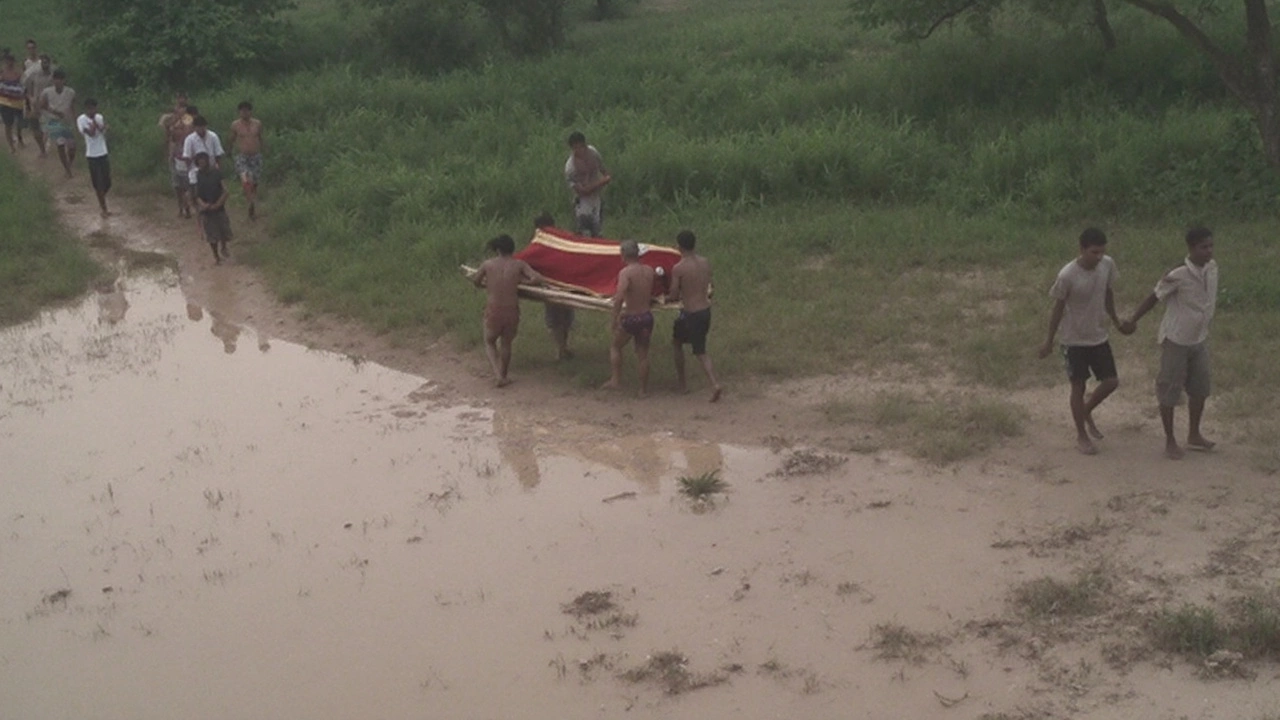Flooded Bridge Leaves Pregnant Woman Stranded, Exposes Rural Healthcare Gaps in MP's Rewa District
 Jul, 18 2025
Jul, 18 2025
Stranded on the Riverbank: A Desperate Search for Help
It’s a story that makes your heart sink. Priya Kol, 24 years old and pregnant, started her day in Bhanigawan village much like any other. But July 15, 2025, turned into a nightmare. When sudden pregnancy complications hit, Priya’s family did what anyone would—they rushed her toward help. But their journey stopped cold at the Mahna river. Heavy monsoon rains had turned the bridge into an impassable torrent.
For two hours, time dragged on the riverbank. Priya’s cries of pain cut through the sound of rushing water, and her family called out for help no one could provide. Their only route—the bridge—was swallowed by floodwaters. Even a call to the nearest health center, Jawa Community Health Center, was met with helplessness; rescue teams or ambulances couldn’t cross either. By the time a local doctor finally reached the stranded family, Priya had lost her battle. It’s a brutal example of how a simple act—crossing a bridge—can be the difference between life and death in rural India.

A Systemic Problem: Healthcare Cut Off by Monsoon
Poor infrastructure isn’t just an inconvenience out here; it can be deadly. The sad truth is Priya had already left her in-laws’ village because healthcare there was next to nonexistent. Like a tragic domino effect, this meant her safest option was her mother’s home—still far from reliable medical support. When things went wrong, fate boiled down to a single flooded bridge.
And Priya’s ordeal didn’t end on the riverbank. Once she passed, the family couldn’t even take her body home the short way. The usual road was still underwater, so they navigated a bumpy 40-kilometre detour to reach her in-laws’ village, the harsh reality of rural transportation coming full circle.
This isn’t just about one woman or one family. During every monsoon, similar scenes play out across Rewa and much of rural Madhya Pradesh. Broken roads, flooded crossings, and no emergency alternatives are a yearly problem. These regions don’t just need patchwork fixes—they need basic infrastructure that works, come rain or shine.
- Primary health centers are few and far between, and many don’t have round-the-clock staff.
- Ambulances often struggle to reach villages during the rainy season.
- Many villages have just one usable road, and a single flood wipes out access completely.
The anger in Rewa is raw. People are tired of seeing their loved ones pay the price for neglect and broken promises. This time, it was Priya Kol. Next time, if nothing changes, it could be anyone. Her tragic end is now a rallying cry for better healthcare and functional roads—something most city dwellers take for granted but far too many rural families can only hope for.